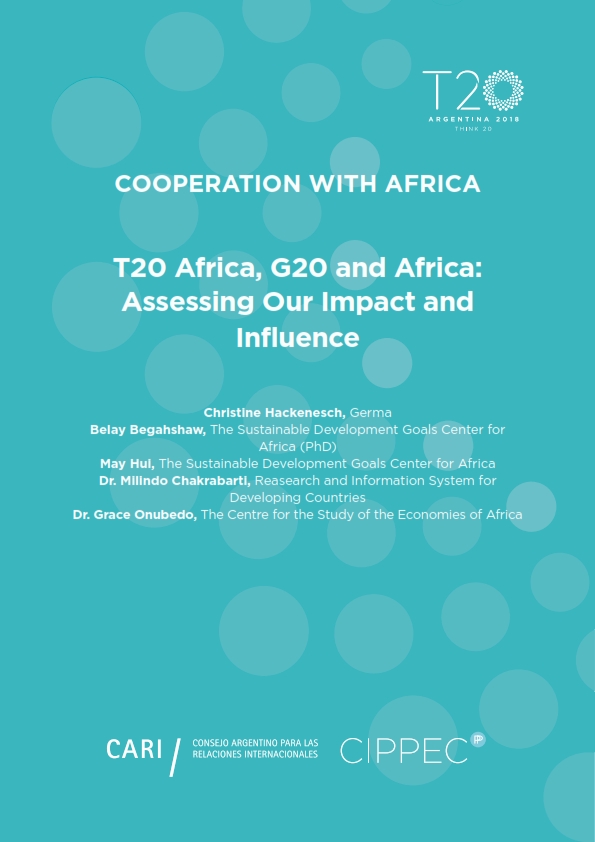As one of the key political and economic forums in the world, the G20 Summit was created to facilitate a stable and peaceful world through promoting several development agendas. Decisions taken by this forum help to support reform at the national and international levels. Since its creation in 2012, the T20 has comprised think tanks that aim at developing research and evidence-based briefs and recommendations to guide governments in policy development. The T20 Africa Standing Group established in 2017 should monitor the extent to which its policy recommendations on Africa-related issues have influenced and impacted policies and plans that emerge out of the G20.
Highlight

September 11, 2018
T20 Africa, G20 and Africa: Assessing Our Impact and Influence
As one of the key political and economic forums in the world, the G20 Summit was created to facilitate a stable and peaceful world through promoting several development agendas. Decisions taken by this forum help to support reform at the national and international levels. Since its creation in 2012, the T20 has comprised think tanks […]
Related
Nigeria Economic Update (Issue 1)
Fuel Subsidy Reform, Social Safety Nets (SSNs) And Pro-poor Growth
Nigeria Economic Update (Issue 35)
Nigeria's Real Gross Domestic Product (GDP) increased at an annual rate of 0.55 percent in 2017Q21, compared to the -0.91 percent (revised) in 2017Q1 indicating the first quarterly positive growth rate since 2016Q1 and an evidenced exit from five quarters of economic recession. The acceleration in real GDP in 2017Q2 reflects the significant increase in oil sector GDP from -11.64 percent in 2017Q1, to 1.64 percent in 2017Q2 a 13.3 percentage points Quarter-on-Quarter increase. However, Non-oil GDP moderated by 0.3 percentage points to 0.45 percent. Despite the recent favorable economic performance, growth prospect remains fragile.
